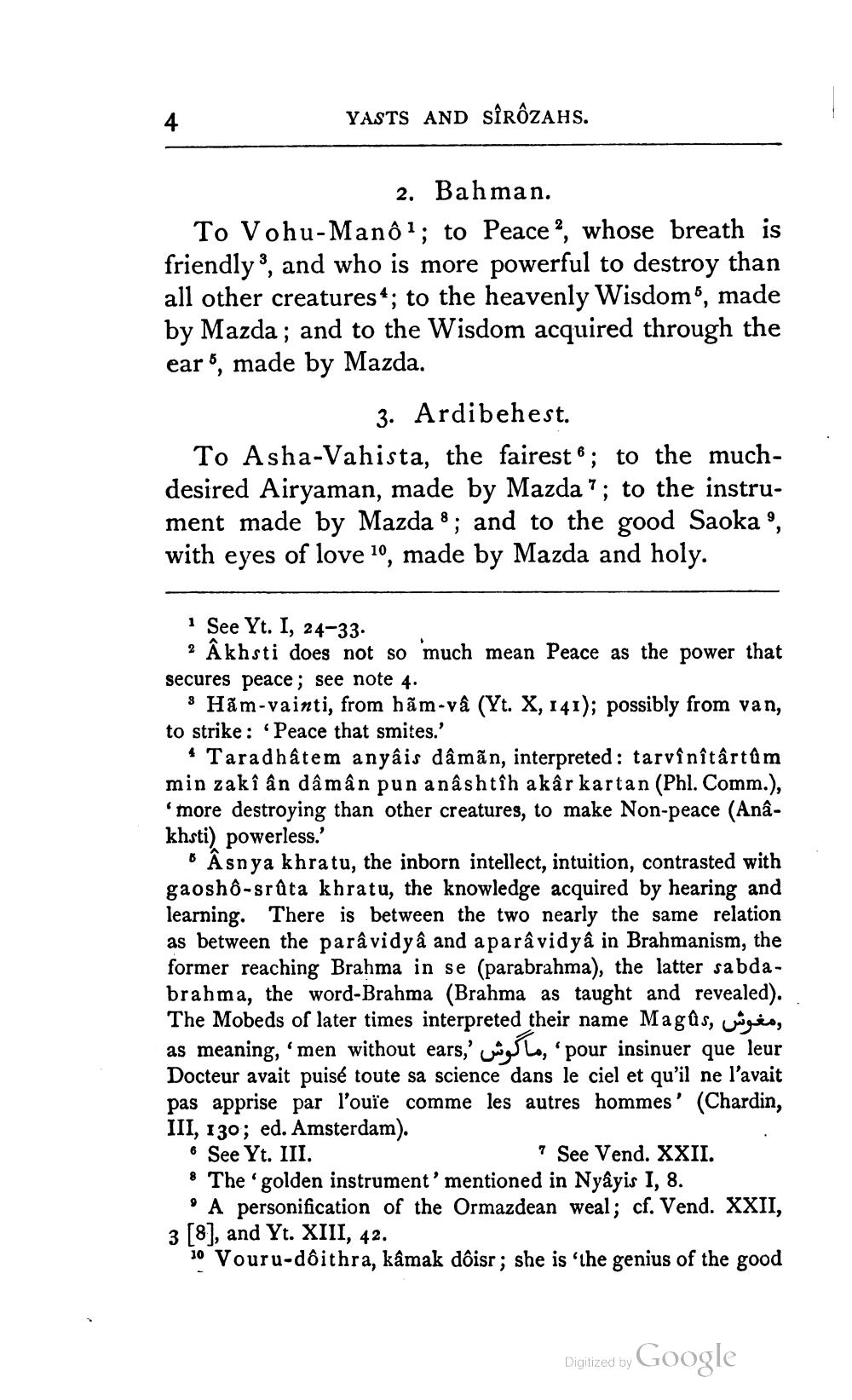________________
YASTS AND SÎRÔZAHS.
2. Bahman. To Vohu-Manô 1; to Peace ?, whose breath is friendly 3, and who is more powerful to destroy than all other creatures 4; to the heavenly Wisdomo, made by Mazda ; and to the Wisdom acquired through the ear, made by Mazda.
3. Ardibehest. To Asha-Vahista, the fairest 6 ; to the muchdesired Airyaman, made by Mazda ?; to the instrument made by Mazda 8 ; and to the good Saoka”, with eyes of love 10, made by Mazda and holy.
See Yt. I, 24-33. ? Âkhsti does not so 'much mean Peace as the power that secures peace; see note 4.
3 Ham-vaiati, from hãm-va (Yt. X, I4I); possibly from van, to strike: 'Peace that smites.'
4 Taradhâtem anyâis dâmãn, interpreted: tarvînîtârtům min zakî ân dâmân pun anâshtih akâr kartan (Phl. Comm.),
more destroying than other creatures, to make Non-peace (Anâkhsti) powerless.'
o Âsnya khratu, the inborn intellect, intuition, contrasted with gaosho-srûta khratu, the knowledge acquired by hearing and learning. There is between the two nearly the same relation as between the parâvidyâ and aparâvidyâ in Brahmanism, the former reaching Brahma in se (parabrahma), the latter sabdabrahma, the word-Brahma (Brahma as taught and revealed). The Mobeds of later times interpreted their name Magûs, juges, as meaning, 'men without ears,' wielo, ' pour insinuer que leur Docteur avait puisé toute sa science dans le ciel et qu'il ne l'avait pas apprise par l'ouïe comme les autres hommes' (Chardin, III, 130; ed. Amsterdam). 6 See Yt. III.
? See Vend. XXII. 8 The 'golden instrument' mentioned in Nyayis I, 8.
• A personification of the Ormazdean weal; cf. Vend. XXII, 3 [8], and Yt. XIII, 42.
10 Vouru-dôithra, kâmak dôisr; she is 'the genius of the good
Digitized by Google




